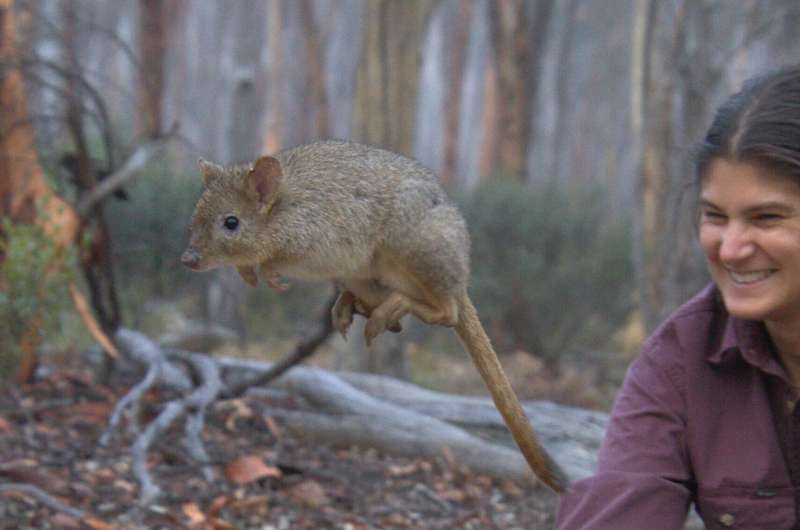Conservation ‘safe havens’ may have a major drawback

They save our animals from extinction but “safe havens” also have a major drawback.
The last remnant populations of woylie—a critically endangered native mammal—remain in southwest Western Australia.
There are other woylie populations across Australia. However, they’re all in conservation areas known as “havens.”
Between 1999 and 2006, wild woylie populations decreased by around 90%. Researchers believe that this is due to the presence of introduced species such as feral cats and foxes, which prey on woylies.
To save woylies from extinction, safe havens were created.
Havens are fenced areas designed to protect a population from predators or habitat fragmentation. With the burden of predators and habitat loss removed from their lives, havened species thrive.
And in theory, once their population reaches a sustainable level, havened species like the woylies are released back into their suitable habitats. The conservation project is then deemed successful.
However, it turns out that havens have their downsides.
We’ve got a woylie big problem
Natasha Harrison is a Ph.D. candidate at the University of Western Australia who has dedicated her research to woylie conservation.
Her recent study looked at whether anti-predator strategies used by woylies changed after being havened.
Wild woylies use a variety of anti-predator strategies to survive. They’re usually hypersensitive of their environment and distract their predators with strategies like ejecting their young from the pouch.
In their study, Natasha and her team looked into 10 years of monitoring data collected by the Department of Biodiversity, Conservation and Attractions. More specifically, the team measured how much the havened woylies struggled or were wary around predators.
Surprisingly, across the span of only 10 years, the havened woylies had lost much of their anti-predator strategies.
This may be an example of a rapid evolutionary response.
What in the haven?
Havens prevent species from becoming completely extinct by providing an insurance population. However, according to Natasha, “we’re shooting ourselves in the foot.”
Previous research has shown that animals in havens lose the ability to protect themselves in the wild. And Natasha’s research on the woylie was no different.
With their protective instincts gone, the havened woylies would be less suitable for reintroduction into the wild—a crucial step in successful conservation.
Why woylies?
Woylies are ecosystem engineers. They have a big impact on the plants and animals around them.
For example, woylies dig up large amounts of soil in their search for food, which helps reduce bushfire intensity and increase plant germination.
“Woylies are obviously a really important part of the ecosystem,” says Natasha.
Getting it just right
The research carried out by Natasha and her team help us understand why animals lose their anti-predator strategies. This can guide management strategies and help preserve these important skills in havens.
Natasha’s future research will examine if woylies can relearn anti-predator strategies.
In the meantime, Natasha suggests conservation managers should expose havened woylies to a controlled level of predators. This exposure would allow woylies to maintain their anti-predator traits, priming them for life in the great wilderness.
This article first appeared on Particle, a science news website based at Scitech, Perth, Australia. Read the original article.
Citation:
Conservation ‘safe havens’ may have a major drawback (2023, July 14)
retrieved 14 July 2023
from https://phys.org/news/2023-07-safe-havens-major-drawback.html
This document is subject to copyright. Apart from any fair dealing for the purpose of private study or research, no
part may be reproduced without the written permission. The content is provided for information purposes only.
For all the latest Science News Click Here
For the latest news and updates, follow us on Google News.

